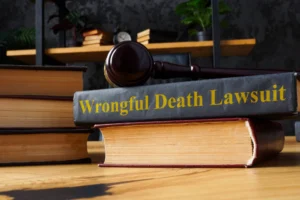Being charged with a federal smuggling offense is often a life-altering experience. For many individuals accused of smuggling: truck drivers, couriers, and first-time offenders alike, the most terrifying part is that they didn’t know they were doing anything illegal. If this sounds like your situation, you may have a valid legal defense known as unwitting possession.
At Guzman Law Firm, we’ve worked with many individuals caught in the crosshairs of federal investigations who were unaware they were transporting undocumented individuals, drugs, illegal firearms, or other contraband. It’s more common than people think. Smuggling networks often use unsuspecting drivers or middlemen to reduce their own exposure, which leaves ordinary people facing serious felony charges.
If you’ve been charged with smuggling or trafficking — especially in a case where you genuinely didn’t know what was happening — contact Guzman Law Firm today, or call (956) 516-7198. Your defense starts with understanding your rights and building a credible case.
What is unwitting possession?
Unwitting possession is an affirmative defense used in criminal cases where the defendant possessed illegal items (e.g., drugs, undocumented immigrants, or other contraband) but had no knowledge that they were in possession of them.
In legal terms, possession can be either actual or constructive:
- Actual possession means the contraband was physically on your person (e.g., in your pocket or backpack).
- Constructive possession means you had the ability to control or access the item (e.g., hidden in the trunk of your car or inside a locked trailer you were hauling).
But for either type of possession to be criminal, the government must prove you knew about it. That’s where unwitting possession comes in. If you can show that you didn’t know you were transporting illegal items or people, you may have a complete defense to the charges.
In federal human smuggling cases under 8 U.S.C. § 1324, the government must prove that the accused “knowingly” transported, concealed, or harbored undocumented individuals. Similar language appears in federal drug and weapons trafficking statutes. If the prosecution cannot prove that you acted knowingly or intentionally, then your defense team can argue that your possession was “unwitting,” in other words, you were unaware of the criminal activity.
But make no mistake: just claiming ignorance isn’t enough. The burden is on your defense attorney to cast serious doubt on the prosecution’s narrative. That means assembling the right evidence, testimony, and context to show you were not a willing participant in a criminal scheme.
How prosecutors claim you “should have known” about a crime
Federal prosecutors are very familiar with unwitting possession defenses, and they don’t take them lightly. In fact, they often preemptively build their cases to disprove ignorance by using a concept called “willful blindness” (also known as deliberate ignorance).
What is considered willful blindness? Willful blindness refers to situations where the defendant should have known about the illegal activity but intentionally avoided learning the truth. In other words, prosecutors will argue that even if you didn’t “know,” you made a conscious effort not to know — and that’s enough for a conviction.
Here’s how prosecutors often try to establish willful blindness in smuggling or trafficking cases:
- Suspicious circumstances: Were the passengers hidden in the vehicle? Were you paid unusually high amounts for a simple trip? Did you take an unplanned detour to avoid checkpoints?
- False documents or fake manifests: If you accepted obviously forged paperwork without asking questions, prosecutors may argue that you ignored red flags.
- Prior warnings or education: If you’ve been warned about illegal activity on your routes or had training to recognize red flags, prosecutors will use this to claim you acted recklessly.
In addition, prosecutors use circumstantial evidence to paint a picture of intent. This can include GPS data, phone records, cash payments, text messages, or anything that suggests you were more involved than you claim.
In these cases, a successful defense often comes down to credibility and context. That’s why it’s essential to work with a criminal defense attorney who knows how to anticipate prosecutorial arguments and counter them effectively.
How a federal defense attorney can build your defense
When your future is on the line, a defense based on unwitting possession must be supported by concrete, persuasive evidence. At Guzman Law Firm, we carefully investigate every detail of your case to challenge the prosecution’s claim that you “knowingly” participated in smuggling or trafficking activity.
Here are some key areas we focus on:
- Lack of motive or gain: If you weren’t paid unusually or didn’t benefit financially, that could support your claim that you weren’t knowingly involved in a criminal conspiracy.
- Clean record and reputation: A history of law-abiding behavior, clean criminal record, and positive character references can help show you weren’t the kind of person who would knowingly engage in criminal activity.
- No control over the contraband: If you were a contracted driver, borrowed the vehicle, or picked up a sealed load, your defense could argue you had no way of knowing what you were transporting.
- Lack of incriminating behavior: If you didn’t evade law enforcement, didn’t lie about your cargo, and didn’t take a suspicious route, that weakens the prosecution’s willful blindness argument.
- Witness testimony: In some cases, it’s possible to secure statements from co-defendants, employers, or third parties confirming that you were kept in the dark.
A skilled federal defense attorney will also scrutinize how evidence was gathered. If authorities violated your Fourth Amendment rights or used overbroad warrants, key evidence may be suppressed. That could significantly strengthen your defense.
How unwitting possession might apply in a legal defense
To illustrate how this defense can play out, here are a few hypothetical but plausible scenarios that mirror real federal smuggling cases. In all of these examples, what the defendant knows — and what they have reason to suspect — makes all the difference.
| Scenario 1: The unwitting truck driver |
| A long-haul trucker is hired last-minute to deliver a sealed container from Laredo to Dallas. He receives his route from a dispatcher and signs off on standard paperwork. At a routine checkpoint, Border Patrol discovers several undocumented immigrants hidden inside a false compartment. If the driver had no knowledge of the hidden cargo and was never told to avoid checkpoints, or his phone records show no communication with the smuggling network, unwitting possession could be a viable defense. |
| Scenario 2: The good Samaritan |
| A woman picks up a hitchhiker near the border who claims to be headed to San Antonio for work. She gives him a ride out of kindness. Later, she’s pulled over and accused of transporting an undocumented individual. If Maria had no idea the person was undocumented, and the individual provided a fake ID, her attorney could argue lack of intent and no reasonable cause to question the passenger’s status. |
| Scenario 3: The package handler |
| A warehouse worker loads freight into trailers for cross-border delivery. He’s later arrested as part of a smuggling investigation. Authorities say drugs were found in a pallet he loaded. If he followed all warehouse protocols, had no control over packaging, and had no direct access to the concealed compartment, unwitting possession is a strong defense here. |
Wrong place, wrong time? Call the right smuggling defense attorney to represent you.
If you’re being charged with a federal drug smuggling or immigration offense and you had no idea what was in your vehicle or under your control, unwitting possession may be your strongest defense. But don’t expect the government to back off without a fight. Prosecutors are trained to dismantle ignorance claims and will do everything they can to convince a jury that you “should have known.”
The key is having a defense team that understands the nuances of federal smuggling statutes, the burden of proof, and how to present compelling evidence on your behalf. At Guzman Law Firm, we’ve successfully defended clients across Texas who were unknowingly caught up in smuggling and trafficking schemes.
If you’re facing smuggling charges in Texas, don’t wait. Contact Guzman Law Firm today for a confidential case evaluation, or call us at (956) 516-7198. Your freedom could depend on how quickly and effectively you respond.
More Helpful Articles by Guzman Law Firm:
- What Is Probable Cause in a Search for Drugs or Firearms?
- Who Is Liable in a Multi-Vehicle Accident in Texas?
- What Happens if You Refuse a Breathalyzer in San Antonio?
- What Are the Consequences of Missing a Court Date in Texas?
- How Texas Law Handles Uninsured Drivers in Car Accidents





